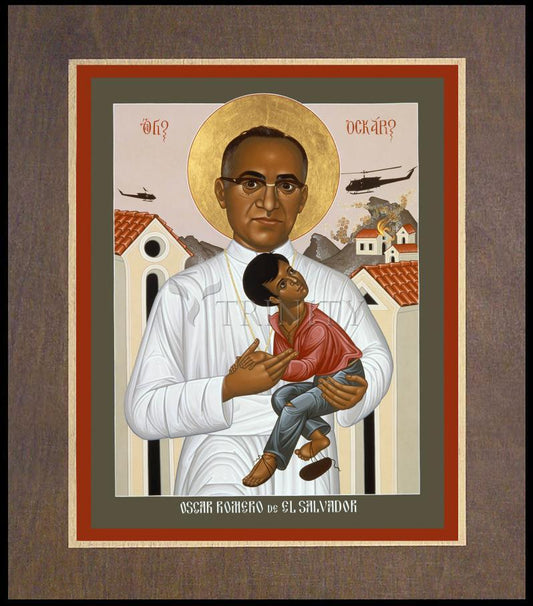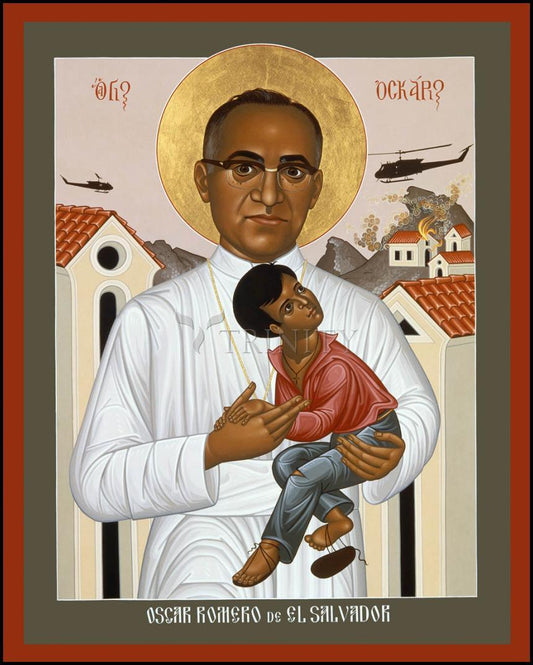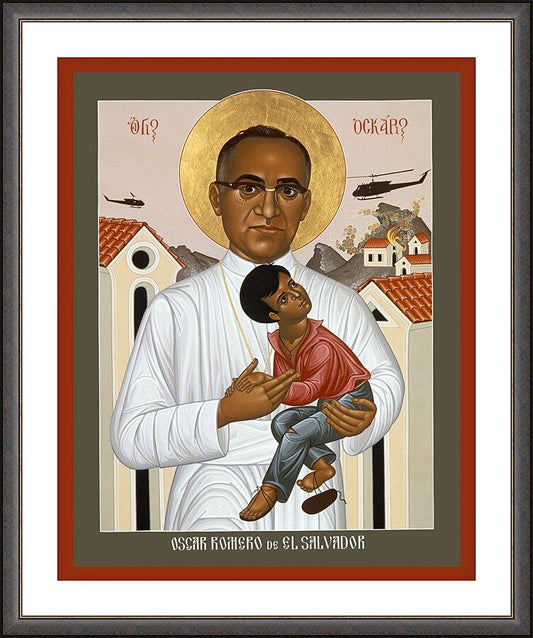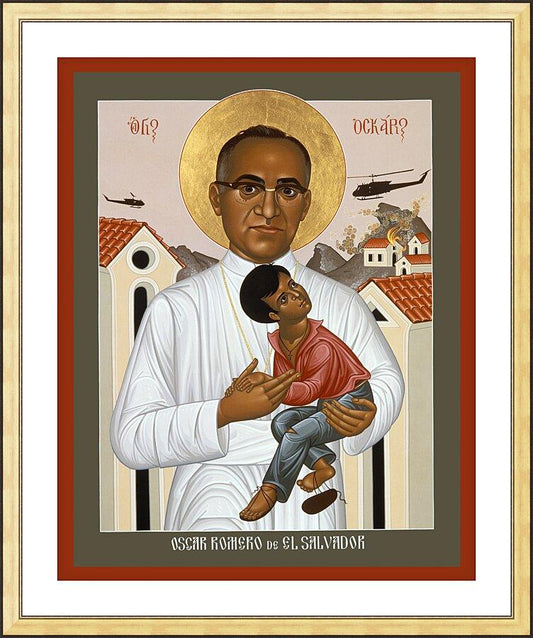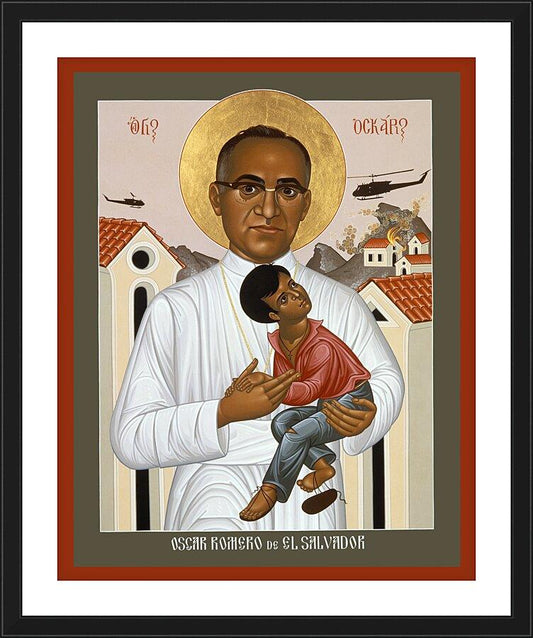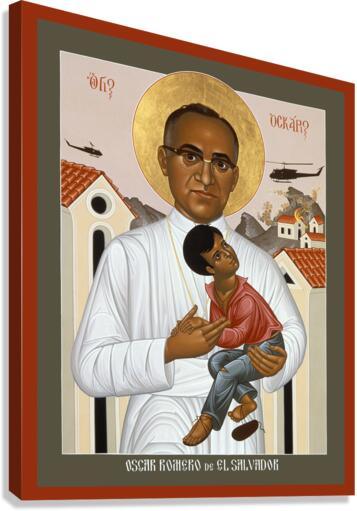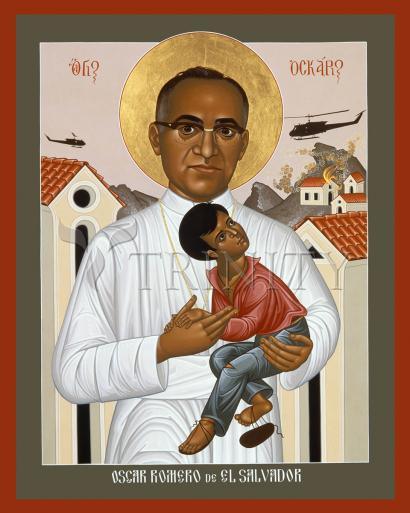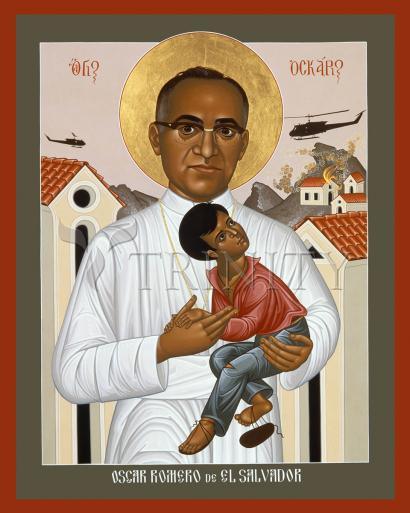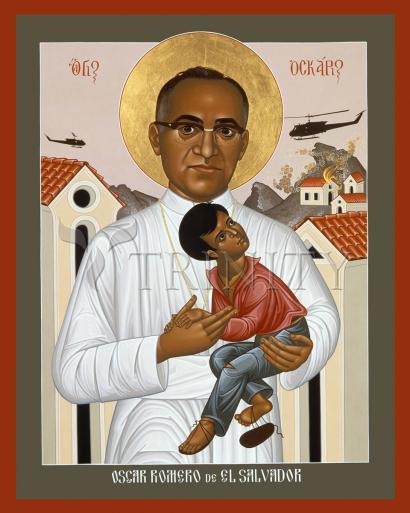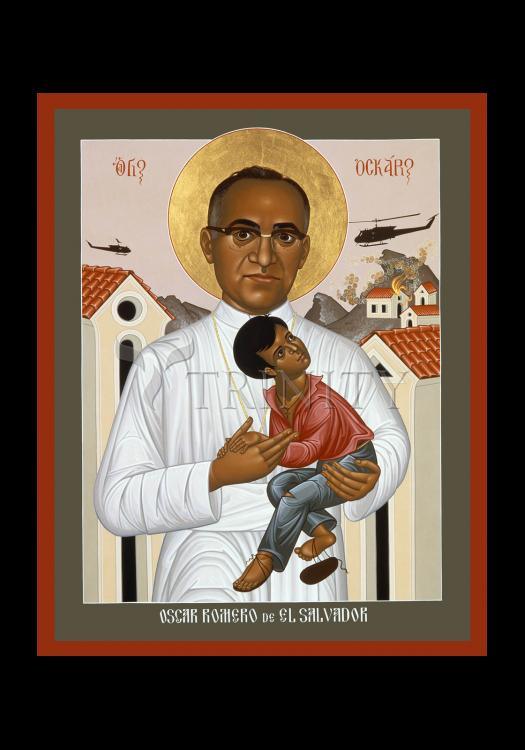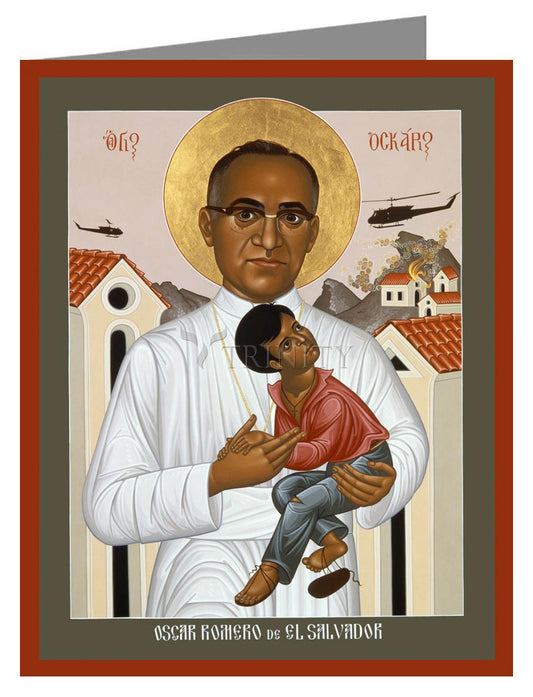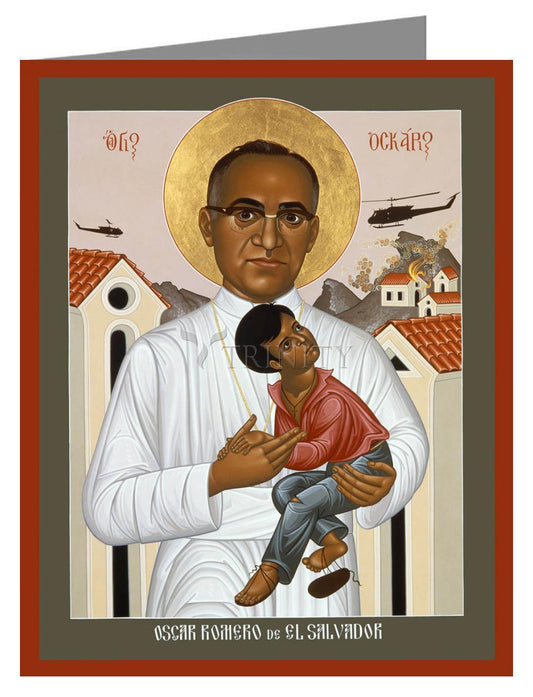Archbishop Oscar Romero
The Last Sermon (1980)
Let no one be offended because we use the divine words read at our mass to shed light on the social, political and economic situation of our people. Not to do so would be unchristian. Christ desires to unite himself with humanity, so that the light he brings from God might become life for nations and individuals.
I know many are shocked by this preaching and want to accuse us of forsaking the gospel for politics. But I reject this accusation. I am trying to bring to life the message of the Second Vatican Council and the meetings at Medellin and Puebla. The documents from these meetings should not just be studied theoretically. They should be brought to life and translated into the real struggle to preach the gospel as it should be for our people. Each week I go about the country listening to the cries of the people, their pain from so much crime, and the ignominy of so much violence. Each week I ask the Lord to give me the right words to console, to denounce, to call for repentance. And even though I may be a voice crying in the desert, I know that the church is making the effort to fulfill its mission....
Every country lives its own "exodus"; today El Salvador is living its own exodus. Today we are passing to our liberation through a desert strewn with bodies and where anguish and pain are devastating us. Many suffer the temptation of those who walked with Moses and wanted to turn back and did not work together. It is the same old story. God, however, wants to save the people by making a new history....
History will not fail; God sustains it. That is why I say that insofar as historical projects attempt to reflect the eternal plan of God, to that extent they reflect the kingdom of God. This attempt is the work of the church. Because of this, the church, the people of God in history, is not attached to any one social system, to any political organization, to any party. The church does not identify herself with any of those forces because she is the eternal pilgrim of history and is indicating at every historical moment what reflects the kingdom of God and what does not reflect the kingdom of God. She is the servant of the Kingdom of God.
The great task of Christians must be to absorb the spirit of God's kingdom and, with souls filled with the kingdom of God, to work on the projects of history. It's fine to be organized in popular groups; it's all right to form political parties; it's all right to take part in the government. It's fine as long as you are a christian who carries the reflection of the kingdom of God and tries to establish it where you are working, and as long as you are not being used to further worldly ambitions. This is the great duty of the people of today. My dear Christians, I have always told you, and I will repeat, that the true liberators of our people must come from us Christians, from the people of God. Any historical plan that's not based on what we spoke of in the first point-the dignity of the human being, the love of God, the kingdom of Christ among people-will be a fleeting project. Your project, however, will grow in stability the more it reflects the eternal design of God. It will be a solution of the common good of the people every time, if it meets the needs of the people.... Now I invite you to look at things through the eyes of the church, which is trying to be the kingdom of God on earth and so often must illuminate the realities of our national situation.
We have lived through a tremendously tragic week. I could not give you the facts before, but a week ago last Saturday, on 15 March, one of the largest and most distressing military operations was carried out in the countryside. The villages affected were La Laguna, Plan de Ocotes and El Rosario. The operation brought tragedy: a lot of ranches were burned, there was looting, and-inevitably-people were killed. In La Laguna, the attackers killed a married couple, Ernesto Navas and Audelia Mejia de Navas, their little children, Martin and Hilda, thirteen and seven years old, and eleven more peasants.
Other deaths have been reported, but we do not know the names of the dead. In Plan de Ocotes, two children and four peasants were killed, including two women. In El Rosario, three more peasants were killed. That was last Saturday.
Last Sunday, the following were assassinated in Arcatao by four members of ORDEN: peasants Marcelino Serrano, Vincente Ayala, twenty-four years old, and his son, Freddy. That same day, Fernando Hernandez Navarro, a peasant, was assassinated in Galera de Jutiapa, when he fled from the military.
Last Monday, 17 March, was a tremendously violent day. Bombs exploded in the capital as well as in the interior of the country. The damage was very substantial at the headquarters of the Ministry of Agriculture. The campus of the national university was under armed siege from dawn until 7 P.M. Throughout the day, constant bursts of machine-gun fire were heard in the university area. The archbishop's office intervened to protect people who found themselves caught inside.
On the Hacienda Colima, eighteen persons died, at least fifteen of whom were peasants. The administrator and the grocer of the ranch also died. The armed forces confirmed that there was a confrontation. A film of the events appeared on TV, and many analyzed interesting aspects of the situation.
At least fifty people died in serious incidents that day: in the capital, seven persons died in events at the Colonia Santa Lucia; on the outskirts of Tecnillantas, five people died; and in the area of the rubbish dump, after the evacuation of the site by the military, were found the bodies of four workers who had been captured in that action.
Sixteen peasants died in the village of Montepeque, thirty-eight kilometers along the road to Suchitoto. That same day, two students at the University of Central America were captured in Tecnillantas: Mario Nelson and Miguel Alberto Rodriguez Velado, who were brothers. The first one, after four days of illegal detention, was handed over to the courts. Not so his brother, who was wounded and is still held in illegal detention. Legal Aid is intervening on his behalf.
Amnesty International issued a press release in which it described the repression of the peasants, especially in the area of Chalatenango. The week's events confirm this report in spite of the fact the government denies it. As I entered the church, I was given a cable that says, "Amnesty International confirmed today [that was yesterday] that in El Salvador human rights are violated to extremes that have not been seen in other countries." That is what Patricio Fuentes (spokesman for the urgent action section for Central America in Swedish Amnesty International) said at a press conference in Managua, Nicaragua.
Fuentes confirmed that, during two weeks of investigations he carried out in El Salvador, he was able to establish that there had been eighty-three political assassinations between 10 and 14 March. He pointed out that Amnesty International recently condemned the government of El Salvador, alleging that it was responsible for six hundred political assassinations. The Salvadorean government defended itself against the charges, arguing that Amnesty International based its condemnation on unproved assumptions.
Fuentes said that Amnesty had established that in El Salvador human rights are violated to a worse degree than the repression in Chile after the coup d'etat. The Salvadorean government also said that the six hundred dead were the result of armed confrontations between army troops and guerrillas. Fuentes said that during his stay u l El Salvador, he could see that the victims had been tortured before their deaths and mutilated afterward.
The spokesman of Amnesty International said that the victims' bodies characteristically appeared with the thumbs tied behind their backs. Corrosive liquids had been applied to the corpses to prevent identification of the victims by their relatives and to prevent international condemnation, the spokesman added. Nevertheless, the bodies were exhumed and the dead have been identified. Fuentes said that the repression carried out by the Salvadorean army was aimed at breaking the popular organizations through the assassination of their leaders in both town and country.
According to the spokesman of Amnesty International, at least three thousand five hundred peasants have fled from their homes to the capital to escape persecution. "We have complete lists in London and Sweden of young children and women who have been assassinated for being organized," Fuentes stated....
I would like to make a special appeal to the men of the army, and specifically to the ranks of the National Guard, the police and the military. Brothers, you come from our own people. You are killing your own brother peasants when any human order to kill must be subordinate to the law of God which says, "Thou shalt not kill." No soldier is obliged to obey an order contrary to the law of God. No one has to obey an immoral law. It is high time you recovered your consciences and obeyed your consciences rather than a sinful order. The church, the defender of the rights of God, of the law of God, of human dignity, of the person, cannot remain silent before such an abomination. We want the government to face the fact that reforms are valueless if they are to be carried out at the cost of so much blood. In the name of God, in the name of this suffering people whose cries rise to heaven more loudly each day, I implore you, I beg you, I order you in the name of God: stop the repression.
The church preaches your liberation just as we have studied it in just as we have studied it in the holy Bible today. It is a liberation that has, above all else, respect for the dignity of the person, hope for humanity's common good, and the transcendence that looks before all to God and only from God derives its hope and its strength.
—Excerpts from The Church and Human Liberation, March 14, 1980.



